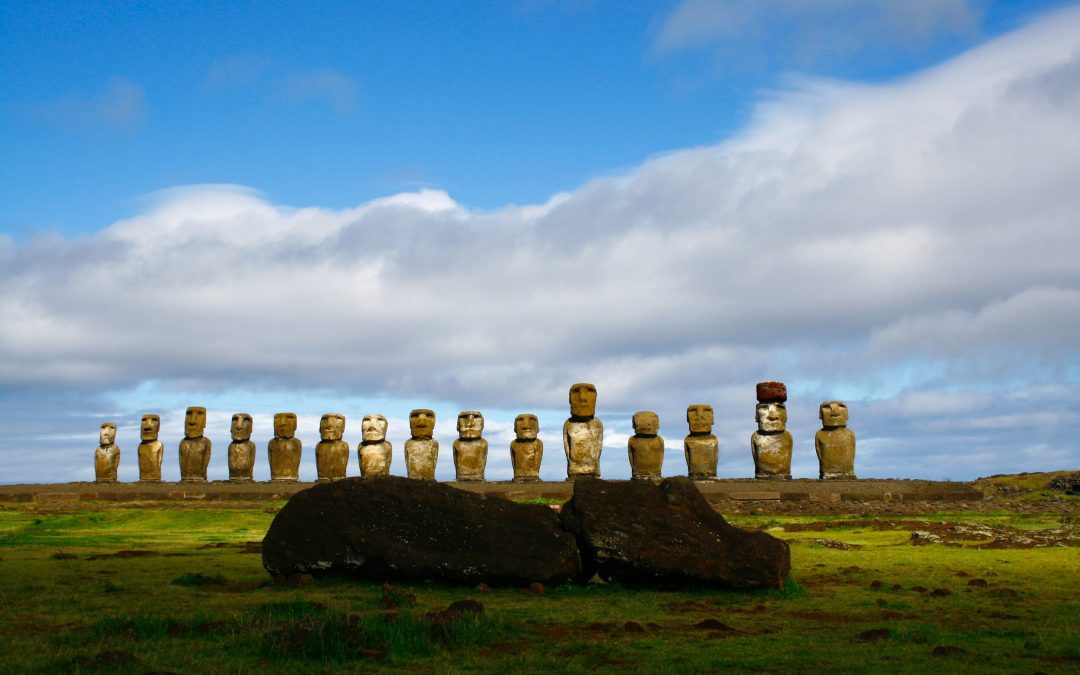Delving into this discussion is always a difficult quandary for me, mainly because I’m usually at a loss in terms of where to begin. It’s complicated, really. There are two debates: One between classical theism and presuppositionalism, and another (related) debate between two-kingdom theology and reconstruction theonomy. I will not go into details about these debates here, but Gary DeMar’s recent article, ‘Biblical Examples of Church and State Jurisdictional Separation’, sets one foot in the former debate and another in the latter debate.
Before you get sucked into reading what follows, a working grasp of both aforementioned debates would be helpful if not necessary to fully understand what will be said here. But I will try to clarify as I go along for those of you who are just now familiarizing yourselves with the broader discussion(s).
DeMar’s article fundamentally relates to the debate between a particular version of two-kingdom theology and his more reconstructionist understanding of theonomy, which largely follows a Gary North/Bahnsen-esque trend. Two-kingdom theology understands natural law to be (1) objective; and (2) knowable. And this is consistent with a classical theistic or scholastic understanding of natural revelation (what is) and natural theology (our knowledge of it). Reconstructionist theonomy tends to affirm natural revelation while denying a stable or usable knowledge of natural revelation as a basis for any sort of civil judicial system. This is because an objective knowledge of natural revelation would imply a natural theology, something rejected by Cornelius Van Til, Greg Bahnsen, and others of their ilk. It would also imply the natural man can understand something of natural revelation accurately, an idea that cuts against the grain of (especially) Van Til’s view of total depravity.
DeMar’s [Insufficient] Reason for Denying Natural Law
Right off the bat, in his article, DeMar takes to attacking the two-kingdom use of natural law, “Some will argue that [morals, governmental jursdictions, and separation of powers] can be accounted for using natural law,” he says. And this position would generally characterize the Reformers and the post-Reformed, who understood natural law to be foundational to civil ethics. Yet, by way of rejecting this position, DeMar offers an alleged reason such use of natural law should be seen as untenable, “But Darwinism ended natural law as a basis for anything except change (emphasis added).” He then quotes Gary North:
Charles Darwin destroyed natural law theory in biological science…. His successors destroyed natural law theory in social science. In the 1920’s, quantum physics destroyed natural law theory in the subatomic world. This immediately began to undermine modern legal theory.
This type of reasoning is highly problematic. If natural law is true, then neither a perversion of nor an attempted rebuttal to it would say anything about its objective reality. Let’s extend their reasoning to a fundamental claim of Christianity—the inerrancy of Scripture. Christians believe the Bible is inerrant. It is really inerrant regardless of what the scoffer might say in response to such a claim (on this we’d all agree). It would seem, however, according to DeMar’s style of reasoning, that a scoffer could invalidate the inerrancy of Scripture merely because he either perverts it (a la., Karl Barth), or rejects it (Julian Wellhausen). But orthodox Christians would never grant this to be the case, would they? Absolutely not.
Therefore, if natural law is true, then it is true regardless of what scoffers (e.g. Darwin) say about it.
DeMar’s Conflation of Being and Knowing
Everyone who rejects outright relativism either implicitly or explicitly affirms a difference between the order of being (what objectively is, i.e. reality) and the order of knowing (our knowledge of it). If these orders are confused, knowing and being becoming virtually synonymous, then our knowledge essentially creates reality. Unqualified subjectivism or relativism inevitably ensues.
When DeMar makes the claim that Darwin “ended natural law as a basis for anything except change,” he is confusing these two orders. What Darwin thinks (order of knowing) of natural law makes no difference as to what natural law is (order of being, objective reality). It is what it is regardless of what a person thinks he or she knows about it. If natural law and its validity stands or falls based on one’s thoughts about it, then relativism is the consistent result from such rationale. Reality is or is not based on what people like David Hume, Immanuel Kant, or Charles Darwin thought about it, or so it is implied. The Christian should reject this kind of thinking outrightly.
Paul clearly states that, “what may be known of God is manifest in them (Rom. 1:18), and that, “His invisible attributes are clearly seen, being understood by the things that are made (v. 20).” Romans 1:18, i.e., “manifest in them,” is further elaborated upon in Romans 2 with the law written on the hearts of the Gentiles. Presuppositionalists obviously trivially accept what Romans 1 says, but they will immediately emphasize v. 18, which says the natural man suppresses this knowledge in unrighteousness. But this does absolutely nothing to natural revelation. While the sinner is in the wrong, natural revelation and thus natural law remain an authoritative source of revelation nonetheless. It’s so authoritative, in fact, that it leaves its dissenters “without excuse,” and eligible for judgement (vv. 20, 26).
Therefore, natural revelation and natural law maintain their full integrity even though sinful man perverts and ultimately rejects it. And this makes DeMar’s claim that, “Darwin ended natural law as a basis for anything except change,” one of shame and compromise. He’s essentially claiming Darwin, a heathen, changed that which God instituted and revealed from the foundation of the world. And he’s also rejecting fundamental reality as nothing more than a Heracletian change-scape with no objective moral force. This is not a position available for the Christian.
DeMar’s Lack of Covenantal Clarity
DeMar gives another example of Joe Biden rejecting the natural law alluded to by Justice Clarence Thomas during his confirmation hearings. But in light of the above, a denial of reality in thought doesn’t automatically equate to a falsification of reality.
Arguing for “biblical jurisdictional separation,” DeMar’s version of a separation between church and state, he begins to invoke the Old Testament, “Moses became the chief judicial officer in Israel, assisted by numerous lesser civil magistrates (Ex. 18:17-26).” There is nothing wrong with DeMar’s observation here, per se. What is wrong is his presupposition that the Old Covenant ought to expressly inform our understanding of modern church/state relations. This may sound foreign to some. “Isn’t the Bible God’s Word, and should not God’s Word be applied to all of life?” it may be asked.
The question assumes something that is true, namely, that God’s Word is the regulating standard for the Christian’s faith (what we believe) and practice (how we live according to what we believe). However, what DeMar does here is quite sloppy. First, he fails to make a distinction between moral precepts and positive precepts. Second, he does not even consider the implications of the New Covenant, brought out in places like Hebrews 8:13, “In that He says, ‘A new covenant,’ He has made the first obsolete. Now what is becoming obsolete and growing old is ready to vanish away.”
DeMar is arguing for the implementation of standards belonging to an obsolete and annulled covenant. The way in which the magistrate interacted with the priesthood in the Old Testament came precisely through the Mosaic Covenant. But if the Mosaic Covenant is gone, then surely the dynamics of magistrate/lesser magistrate instituted through it are gone as well. What would be our standard for understanding a quasi-continuation of the Old Covenant if Scripture itself annuls its formal and material cause, its final cause being met in Christ? There is none.
The moral law, or the Ten Words, were part of the Mosaic Covenant, and one may opine, “If government is to operate according to the Ten Commandments, then the Mosaic Covenant must be appropriated somehow.” But this is both wrong and unnecessary. The moral law or the Ten Commandments did not come through the Mosaic Covenant, but were already in force prior to it, and were merely included within the Mosaic Covenant. Even the Sabbath was operative prior to the revelation of the Law-covenant at Sinai (Ex. 16). If one were to study Genesis, they would find every moral precept in the Ten Commandments were both known and in force prior to the implementation of the Ten Commandments within the context of the Sinai Law-covenant (Mosaic Covenant).
The question, then, would be, “How were they known?” I believe Romans 2 helps us confirm an answer to this question we should be able to know through reason, “God’s law is known to man apart from the Law-covenant, i.e. Gentiles who are without the law know the law.” Even prior to the institution of the Law-covenant in Exodus 20ff, the moral law was apprehended and applied to society without any express or systematic Scriptural revelation. In other words, it was assumed. This continues to be the case today. And though these natural laws are carried out imperfectly within sinful society, this says nothing about the existence and objectivity of natural law itself. It only says something about man’s sin and his rebellion against God.
All of DeMar’s examples concerning the dynamics of church/state relations are examples drawn from within the Mosaical context, a context which no longer exists with the establishment and inauguration of the New Covenant (cf. Hebrews 8). It is mention-worthy that DeMar does not cite a single extra-Mosaical or otherwise New Covenant example to bolster his point. Consistent application of the Mosaic Covenant in this fashion would lead to a belief that any given country is obligated to be a theocracy with a monarch and an informing priesthood. And this is exactly what Roman Catholicism tried to accomplish, and often succeeded at doing throughout certain points in history. The inverse example can be found in the Protestant (often Lutheran & Reformed) churches who were ruled by monarchs. Instead of the church ruling the monarch (a la., Rome), the monarchs ruled the church. None of this, of course, bore good fruit. And, I would say, the only reason Gary DeMar is likely alive (along with many of us) is because of the tolerance of Oliver Cromwell and the eventual rebellion of the Protestant churches against the monarchs (think non-conformists). Not to mention, the nation eventually spawned by such independent thought, the United States.
All of this seems to be lost on DeMar with his over-commitment to reconstructionism, which is actually nothing more or less than a reimplementation of Mosaical institutions which the New Testament has abolished. It’s his “blind-spot,” I believe (Lord help us, we all have them).
A popular retort has been, “But Jesus said, ‘Do not think that I came to destroy the Law or the Prophets. I did not come to destroy but to fulfill (Matt. 5:17)’!” I agree! But the term law must be qualified. It’s used equivocally time and time again in the New Testament. So, which law was Jesus speaking of? The temporal Mosaic covenant, or the eternal moral law? If one reads through the Sermon on the Mount, they would see the eternal moral law is most certainly in view.
To tie this up in a pretty red bow, and bring it back to my earlier claim, that DeMar “fails to make a distinction between moral precepts and positive precepts”: Moral precepts, which just is natural law, are nothing more than a revelation of the unchanging moral character of God applied to creaturely living. Positive precepts are those things commanded beyond mere moral law, and they sit upon moral law much like a superstructure sits upon a foundation. But positive commandments come through covenant and are, therefore, subject to the purpose of the covenant, e.g. for a specific people, place, time, etc. The Mosaic Covenant included countless positive precepts which went beyond the unchanging moral law of God. Included in those positive precepts were the ceremonial and civil laws, which often intertwined with one another, as DeMar himself notes in his article. But these laws are expressly annulled by the New Testament.
The later institution of a monarch in Israel represents an amendment to the original design of the Mosaic Covenant. Yet, the Israelite monarch was a type instituted to look forward to the other and greater antitype, King Jesus.
Conclusion
I will close by summarizing my criticisms above in the form of a brief argument:
(1) If the dynamics between kings and priests are perpetual for every human society, then the laws defining kings and priests are perpetual.
(2) If the laws defining kings and priests are perpetual, then the Old Covenant is not annulled.
(3) But the Old Covenant is annulled (Heb. 8).
Therefore,
(C1) The laws defining kings and priests are not perpetual.
Therefore,
(C2) The dynamics between kings and priests are not perpetual for every human society.
Perhaps the most significant blunder in DeMar’s political theology is his neglect of covenantal distinction. That which comes through any given covenant cannot be fragmented or separated from its original covenantal context. As it is, the New Covenant annuls the Mosaic Covenant and all that which originated through it.
In my opinion, DeMar could strengthen his position if he stopped appealing to the Mosaic Covenant and its positive-temporal precepts, instead making appeal to the Noahic covenant in Genesis 8-9, which sets the judicial standard, not only for Israel, but for all creation as the result of sin coming into the world. And it can thus be applied to all societies, yet with a degree of liberty in terms of the particulars. I believe this is what John Calvin had in mind with his two-kingdom political theology in book IV of his Institutes. The moral law must be applied throughout society, since it is the natural standard for the whole world without exception. And so long as the moral law of God is what any given civil law seeks to serve, then said civil law may be justified.
I realize I now open myself to the question, “By what standard do nations execute the moral law?” But while the moral standard is the same across the board, the mode of upholding it may be compared to something like individual Christian liberty. In this case, there would be a sort of national or civic liberty in the mode of enforcing the moral law, since there is no specific mode of enforcement revealed in Scripture for nations who do not live under the Mosaic Covenant, but only general principles.
DeMar’s concern seems to be one we should all share. “How do we overcome the subjective interpretations and perversions of natural law?” But this concern doesn’t warrant a wholesale rejection of natural law theory. And to answer the question, “How do we overcome the subjective interpretations and perversions of natural law?” I would say we do so in the same manner we overcome subjective interpretations and perversions of the Scripture: We argue about it, and to the victor goes the spoils. Such is our lot in a sinful world, with no utopian solution.
This is why we need to be collectively pushing for a recovery of logic in ethical and political discourse. Arguments are the means by which we justify our theses, and this is true regardless of whether or not we see natural law or the positive commands of Scripture as the standard for civil justice. False interpretations of either will persist, and only by logical discourse can we get to the bottom of what and what is not true.
And, I would add, no other environment has allowed for this to occur more effectively than that of the environment protected by the Constitution of the United States of America over the last couple centuries.





